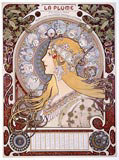| |
|
26 Outubro 2007 03:26 |
| |
|
26 Outubro 2007 11:23 |
| when exactly is this translation going to be modified? because I'm SURE that the translation of "douzo yoroshiku" is "se bueno conmigo".
only people who know japanese should be giving their opinion here... because you have to know japanese to understand that they have different ways of greeting each other for the first time (and not all can be translated as "nice to meet you" because sometimes they say all of them at the same time... and you can't just repeat "nice to meet you", can you? they don't even mean the same thing) |
|
27 Outubro 2007 10:24 |
| |
|
28 Outubro 2007 02:15 |
| |
|
31 Outubro 2007 04:31 |
| Encantando es cuando tu conoces alguien...es como mucho placer en conocerte! o Nice to meet you en english... |
|
31 Outubro 2007 09:02 |
| s'il vous plait soyez bon |
|
2 Novembro 2007 12:53 |
| I dont speak japanese but the spanish translation has nothing in common with the english translation.Encantado means Enchanted or Charmed. |
|
2 Novembro 2007 16:05 |

goncinNúmero de mensagens: 3706 | pirulito,
Parece que esta traducción está para ser rechazada. Lo siento muchÃssimo, Cisa... CC: Cisa pirulito |
|
3 Novembro 2007 16:04 |

CisaNúmero de mensagens: 765 | Hi Goncin
I still leave it Encantado. Douzo yoroshiku is quite a multifunctional phrase. You can use in many different contexts, in tis case I thought about meeting with someone for the first time, then you say hajimemashite- introduction- and then comes a mutual douzo yoroshiku. And of course, please be good to me is very well translated, but you won´t say Please be good to me in Spanish if you meet somebody. Maybe mucho gusto is better then, but I stick to my opinion! 
Cisa
PS: If you can´t decide yourself, then let the poll decide and nobody´s harmed then, because the decision is democratic enough! 
|
|
4 Novembro 2007 00:32 |
| I think that "encantado" only means "nice to meet you" |
|
4 Novembro 2007 08:23 |

CisaNúmero de mensagens: 765 | Hi Goncin,
I think the biggest trouble is that people who speak English and Spanish, but Japanese not, vote. They only see ´Please be good to me´ and of course they think Encantado is wrong!! |
|
4 Novembro 2007 08:37 |
| encantado IS wrong. you have to *translate*, not to *adapt* to your language. the translation is "se bueno conmigo".  |
|
4 Novembro 2007 11:46 |

guilonNúmero de mensagens: 1549 | Could you tell us what this Japanese text means and in which context it is used? Thank you. CC: IanMegill2 |
|
4 Novembro 2007 12:02 |
| Hi guilon! 
The problem here is that there are two ways of approaching this translation:
- one would be the literal translation, which is:
Please be nice to me.
The problem is, no native speaker would ever say that upon meeting another for the first time. We usually say
How do you do? Nice to meet you.
or some such phrase. Japanese people say
Hajimemashite. Dôzo yoroshiku.
in the same situation, but the literal translation of this would be
It's the first time. Please be kind to me.
! 
- So the other way of translating it would not be au pied de la lettre but situational, i.e. what would a native speaker of English say in exactly the same case when meeting someone for the first time? And in this case, Cisa is right, it would be some version of
Nice to meet you
or
I look forward to getting to know you better
or
I look forward to doing business with you
or
...
When our two languages are so radically different, I usually prefer the situational "mapping" of the English phrase onto the Japanese one myself, when I work as a professional interpreter here in Japan.
I suggest putting the "situational" translation in the main Translation field, and the literal translation in the Remarks field. (That's what I've been doing up till now with my translations from Japanese and Chinese.)
Ref: this translationCC: guilon |
|
4 Novembro 2007 12:24 |

guilonNúmero de mensagens: 1549 | Thank you very much, Ian. As I suspected, Cisa's translation was perfect. This translation has been a real pain in the rear, it is about time to accept it, please go ahead, Pirulito. CC: Cisa pirulito |
|
4 Novembro 2007 14:57 |

CisaNúmero de mensagens: 765 | Miyabi,
I hate word-to-word translations! If you stick to this, then you´ll get very weird translations sometimes. If you have a little experience in translation, then you know what I mean. Idiomatic expressions, non-existing structures in your language etc.
have a nice day, Cisa |
|
4 Novembro 2007 14:58 |

CisaNúmero de mensagens: 765 | Thanks for accepting, guys! 
Thanks for your cooperation, Ian!  |
|
4 Novembro 2007 17:39 |

goncinNúmero de mensagens: 3706 | My apologies, Cisa! 
You were right all the time; just I sometimes hate polemics, and this maked me nuts...  CC: Cisa CC: Cisa |
|
4 Novembro 2007 23:07 |
| My pleasure, Cisa!  Keep up the good work in your studies of this CRAZY language!
Keep up the good work in your studies of this CRAZY language!  CC: Cisa CC: Cisa |
| |
5 Novembro 2007 02:20 |
| "Encantado" should be translated as "Charmed," "Pleased to meet you," or (very literally) "Enchanted" in English. The note below it--"Literally means Que seas bueno conmigo" should be translated as "That's really good for me," "That would be great," etc. |

